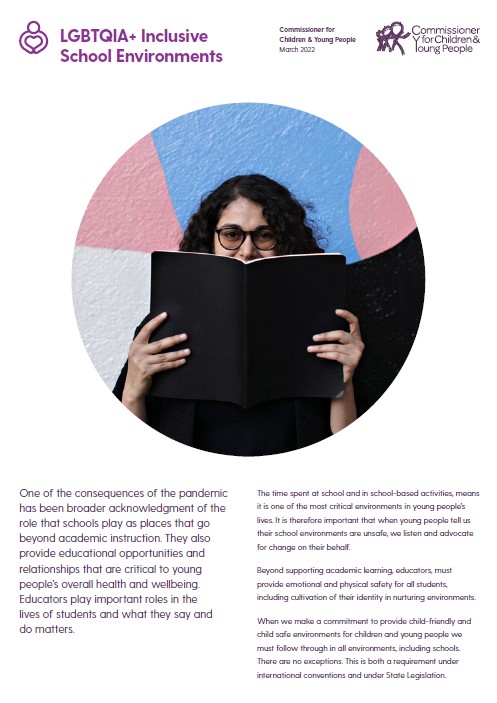The time spent at school and in school-based activities means it is one of the most critical environments in young people’s lives. When we make a commitment to providing child-friendly and child safe environments for children and young people we must follow through in all environments, including schools. There are no exceptions. This is both a requirement under international conventions and under National and State Legislation. Under the National Principles for Child Safe Organisations, schools must take action in both policy and practice to actively celebrate and provide inclusive and affirming support for diversity.
Educators play important roles in the lives of students and what they say and do matters. Beyond supporting academic learning, educators, must provide emotional and physical safety for all students, including cultivation of their identity in nurturing environments.
This guide provides key insights from children and young people on what is needed to build inclusive school environments that ensure LGBTQIA+ students feel known, valued, included and heard at school without fear of being ridiculed, bullied or ignored by students or teachers because of their sexual identity.

